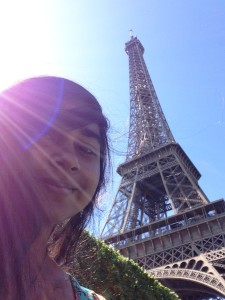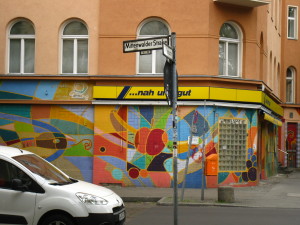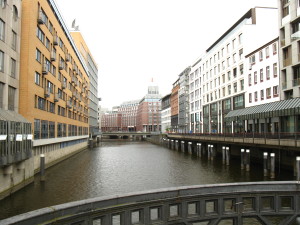(Sorry. I speak no German.) — An American Abroad
They said Germans are cold and robotic. I wasn’t feeling it. We were talking about music and weather and cities and trains. Although, he did inform me that, had I been German, this conversation would not be taking place.
I was on a train to Hamburg for a day trip from Berlin, where I had been doing the Humanities and Engineering summer study abroad for the past month.
The program consisted of two and half courses: Electrical Engineering I and lab (EE) and a humanities course focused on memory and memorialization. EE was conducted at the Embry-Riddle Worldwide campus near Nollendorfplatz station and taught by Dr. Ilteris Demirkiran, while the humanities course, taught by Dr. Rachel Silverman, met up all around Berlin and, in the second week of class, took a trip to Paris to contrast memorialization in Paris to that in Berlin.
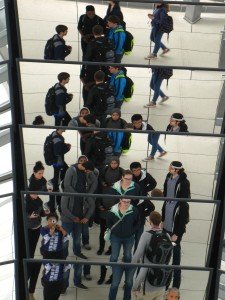
In total, we were twelve students: five girls, seven boys. Here, the whole group and Dr. Silverman are reflected in the panels of the central mirror in the Reichstag Dome. The mirror illuminates the building below, where the Bundestag, the German Parliament, meets.
EE met Monday through Thursday in the afternoon. Dr. D front-loaded the EE classes so that the last week of the semester he could end class in an hour or two and take us to see some of the beautiful sights in Berlin. That did mean, however, that classes at first ran for four to five hours, though they were thankfully (and rather wonderfully) punctuated by Dr. D’s humorous, and occasionally life-lesson-y, anecdotes.
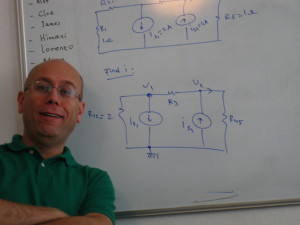
Dr. Ilteris Demirkiran, our EE professor. Classes met in the afternoons Monday through Thursday and often ran for several hours since we were covering a semester’s worth of material in one month.
The humanities course, Memory and Memorialization, met mornings Monday through Thursday and consisted of touring through memorials, monuments, and sometimes museums (mostly of the Holocaust). Classes were preceded by related articles and readings and followed by assignments requiring us to formulate a question about memory, memorialization, the memorial of the day, and the related reading.
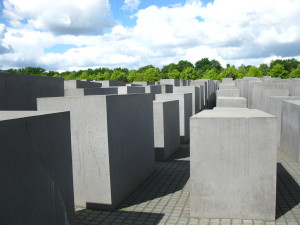
The Memorial to the Murdered Jews of Europe, constructed by the German government, was initially controversial because people were concerned it would mean an end to the conversation of how to properly remember past atrocities.
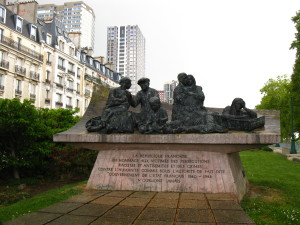
The Vel d’Hiv memorial in Paris commemorated the Jews the mass deportation of the Jews from Paris in July 1942.
The courses were good, and getting them done over the summer saves you some time to graduation. However, the best part of study abroad is, of course, being abroad: seeing new cities, understanding other cultures, meeting new people, getting a little lost, and finding your way again. I found that Paris was very much the elegant, charming place I expected it to be, whereas Berlin was grittier, graffiti-covered and captivating in a risen-from-the-ashes sort of way.
Many chose to take the opportunity to see some of the other major European cities, such as Amsterdam, Prague, and London. Me? I wanted to get as full a sense of the local culture as I could, so I chose to immerse myself in Berlin and spent two weekends in the city. And then, I went to Hamburg.
As fields and towns and a massive wind turbine farm sped past, I chatted with my fellow Hamburg-bound train traveler. The Berliner listened to Macklemore and Lana del Rey along with other artists of whom I had never even heard. He did not own a car (and did not plan on owning one) because the bus and regional train system in Germany made getting to places outside Berlin without a car manageable. I explained how getting a car in the States was not only a matter of necessity if you wanted to go anywhere outside a major city but also a sort of cultural rite of passage. When a smattering of clouds threatened the sunlight, he warned me that “the clouds came with the city” of Hamburg. I felt grateful for the little umbrella sitting snugly in my backpack.
Hamburg was beautiful. Very different from Berlin, the river port city had several canals running straight through its center and was constantly under or about to be under a rainstorm (the umbrella came in very handy). Massive tankers and freight ships floated on the far side of the River Elbe, flanked by rows of cranes. I enjoyed every second of my Hanseatic adventure.
Studying abroad in Berlin is one of the best experiences I have ever had. I love travel and learning, meeting new people and pushing myself to live adventurously. Is studying abroad for you? Honey, only you know that. I woke up one morning and just decided I wanted to go, so I went. If you find that same absurd urge take hold, listen to it. Even if you don’t, trust me, seeing the world is worth your time, even if you see it in small chunks.
(Want to know more about Berlin/Paris? Check out my next post for more.)


